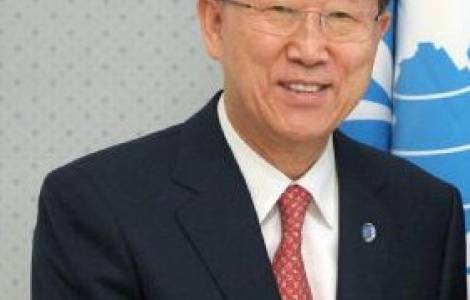
Kinshasa (Agenzia Fides) - On 25-26 February, the Secretary General of the United Nations, Ban Ki-moon, visited the Democratic Republic of Congo.
In the concluding press conference, he called on the Congolese political class to favor an inclusive political dialogue, in order to agree on a consensual electoral calendar that allows to organize, in compliance with the Constitution, the upcoming elections in a transparent, credible and peaceful manner (see Fides 02/03/2016).
At the same time, however, he expressed concern regarding the delays in the electoral process, which increases the tension arising from the fear that President Joseph Kabila intends to run for a third term, and for the increase in human rights violations and the growing restriction of democratic space.
"As can be seen, on the one hand, Ban Ki-Moon represents the 'defense attorney' of the inclusive political dialogue convened by President Kabila. On the other hand, referring to human rights violations and the narrowing of democratic space, he himself seems to acknowledge that there are no sufficient conditions that can allow to sit all together around the same table to discuss and take joint decisions that allow to build the future", says a note sent to Agenzia Fides by the "Peace Network for Congo".
In fact, beyond the differences and partisan interests, that is preventing the launching of dialogue and the preparation of the next elections, it is above all the absolute attachment to power by those who already hold it", stresses the note.
The Peace Network for Congo underlines that "it is the stubbornness of wanting to stay in power which deteriorates, slows down and stops the electoral process and that, at the time of the election, is at the origin of electoral fraud" just like what happened during the presidential and legislative elections in November 2011.
"These examples show that, if it is necessary to keep talking about dialogue, inclusion and consensus, it is equally necessary not to simply make declarations but to carry out investigations and judicial procedures, pressures and sanctions against those who violate human rights, suppressing basic freedoms of opinion, expression and demonstration, or do not respect the fundamental values of democracy", the statement concludes. (L.M.) (Agenzia Fides 09/03/2016)